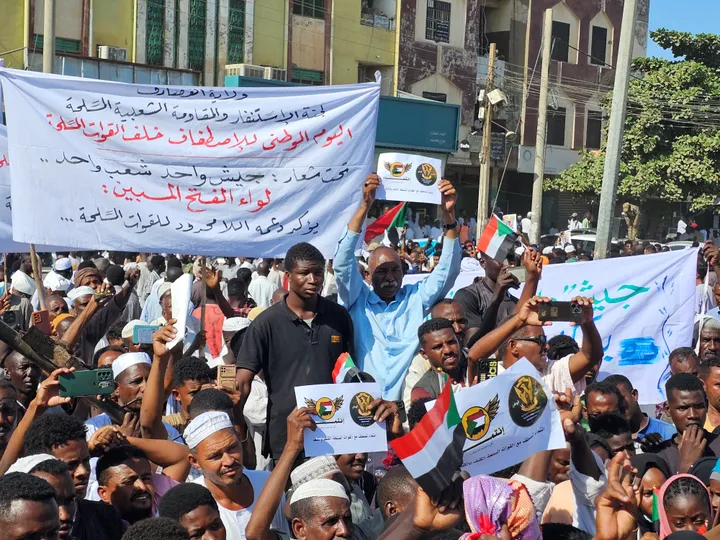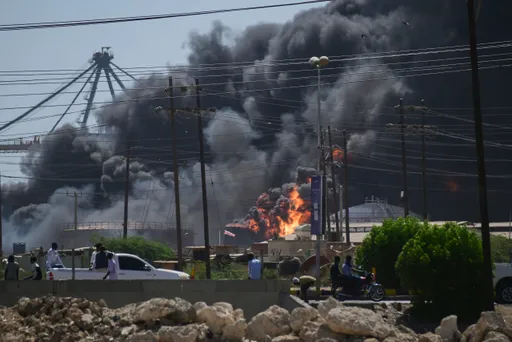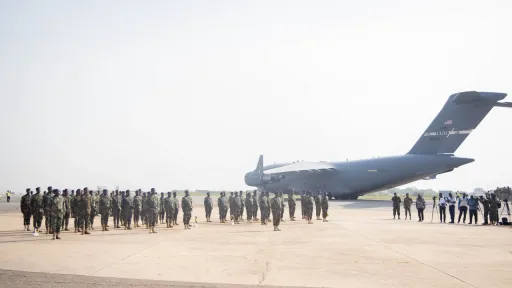Football is often described as the world’s most unifying force, a sport that transcends borders, culture, and politics. Yet beneath the chants and celebrations lies a troubling silence.
As the people of Gaza endure relentless bombardment, siege and systematic destruction, FIFA, the very organization that claims to stand for equality and fair play, remains unmoved.
The same FIFA that swiftly expelled Russia from international football after its 2022 invasion of Ukraine now refuses to act against Israel, a state repeatedly condemned by the United Nations, the International Court of Justice (ICJ) and human rights organizations for war crimes, apartheid and genocide.
This contradiction exposes not just a political bias but a profound moral failure within the global football establishment.
Since October 2023, Israeli forces have killed over 40,000 Palestinians, including more than 15,000 children, according to figures cited by the UN Office for the Coordination of Humanitarian Affairs (OCHA). Nearly every sports facility in Gaza has been reduced to rubble. Over 400 footballers and coaches have been killed.
In early August this year, Palestinian footballer Suleiman Al-Obeid, widely known as the “Palestinian Pele,” was killed by Israeli forces while waiting for food in a humanitarian aid zone. His death adds to a growing list of athletes who have lost their lives in Gaza since the war began in October 2023. At least 800 sportspeople and their relatives have been killed.
This tragedy sparked outrage across the football world, yet the response from football’s governing bodies was revealing. UEFA published a brief condolence message without mentioning how or by whom he was killed.
Egyptian and Liverpool striker Mohamed Salah publicly asked UEFA, “How did he die, where, and why?” The organization offered no reply, undermining football’s universal value as a platform for unity, justice, and human dignity.
At the heart of this hypocrisy lies FIFA’s own constitution. Article 3 of the FIFA Statutes explicitly binds the organization to uphold “internationally recognized human rights.” Article 4 prohibits discrimination of any kind, while Article 64.2 states that member associations and clubs “may not play on the territory of another member association without its approval.”
Yet for over a decade, six Israeli football clubs have been allowed to operate in illegal settlements in the Occupied Palestinian Territory (OPT), land recognized by the international community as belonging to Palestine. The Israeli Football Association (IFA) continues to include these settlement-based clubs in its national league system, effectively normalizing an ongoing military occupation.
Football in Palestine has long been a symbol of resilience. Children play barefoot amid rubble; young athletes dream of international competition even as stadiums crumble under bombs.
But Israel’s ongoing campaign has deliberately targeted that dream. For instance prominent figures such as Pep Guardiola, Gary Lineker, and Eric Cantona have expressed solidarity with Palestinians and criticized the hypocrisy of football’s governing bodies.
Football is not merely a sport, it is the world’s largest civil society platform and a vehicle for collective conscience.
The Palestinian Football Association (PFA), which joined FIFA in 1998, has repeatedly appealed to the governing body to ban the Israeli Football Association (IFA) for allowing six Israeli clubs to operate in occupied Palestinian territories.
The formation of settlements on occupied land is illegal under international law. In July 2024, the International Court of Justice (ICJ) declared Israel’s presence in the Occupied Palestinian Territory unlawful and called on states to refrain from any dealings that would entrench that presence.
The UN Special Rapporteur added that corporate entities have a “prima facie responsibility to withdraw totally and unconditionally” from any association that strengthens Israel’s occupation.
Yet FIFA and UEFA continue to provide funding for Israeli teams, effectively complicit in supporting the infrastructure of occupation.
The precedent of Apartheid South Africa provides a clear moral and legal comparison. FIFA banned South Africa in 1964 for racial discrimination and human rights violations, and the ban remained in place until 1992.
The global boycott, divestment, and sanctions (BDS) movement of that era, supported by civil society and trade unions, helped dismantle apartheid by isolating South Africa politically, economically, and culturally.
Sports boycotts were among the most effective tools in pressuring the apartheid regime to change. Similarly, Israel must face the same isolation if football is to remain consistent with its principles of justice and equality.
A moral mirror
To understand the power of sport as a moral force, one need only revisit the anti-apartheid movement of the 20th century. When South Africa enforced racial segregation, the global sports community refused to look away.
By 1964, the country was banned from the Olympic Games. In 1976, after the Soweto massacre, the campaign to isolate South Africa intensified, culminating in a FIFA suspension that lasted until 1992.

The rationale then was clear: apartheid violated the principle of equality and dignity inherent in sport.
Today, multiple international organizations including Human Rights Watch, Amnesty International and B’Tselem (Israel’s own leading human rights group) have concluded that Israel maintains an apartheid system.
Their reports cite discriminatory laws, segregated infrastructure and dual legal systems that favor Jewish settlers while oppressing Palestinians.
By the moral logic applied to South Africa, Israel’s exclusion from world sport should be automatic. And yet, FIFA’s leadership remains reluctant, afraid to confront political pressure from Western governments and sponsors.
This cowardice is not merely bureaucratic; it is a betrayal of football’s moral legacy. When sport once helped dismantle apartheid, it now risks legitimizing it.
If FIFA and UEFA truly stand for humanity, justice, and fair play, then their inaction is indefensible.
To allow Israel to compete while it commits genocide and apartheid is to legitimize those crimes. Just as apartheid South Africa was isolated until it reformed, so too must Israel face international sporting isolation.
Failing to act makes FIFA and UEFA complicit not only in the destruction of Palestinian life but in the erosion of moral integrity within the global sporting community.
Football, as a universal language, should stand with the oppressed, not the oppressor. History will remember where FIFA and UEFA stood either on the side of justice or on the wrong side of humanity.
FIFA faces a defining moment, not just as a sports institution but as a moral actor on the world stage. Its statutes, its history and its rhetoric demand a stand for human rights. Yet its silence over Israel’s crimes exposes a deep corruption of principle.
By refusing to suspend the Israeli Football Association, FIFA legitimizes occupation, normalizes apartheid and betrays the millions who believe football represents fairness and unity.
If the world once used football to help dismantle apartheid in South Africa, it must now use the same instrument to challenge apartheid in Palestine. Anything less is hypocrisy and history will remember it that way.
























